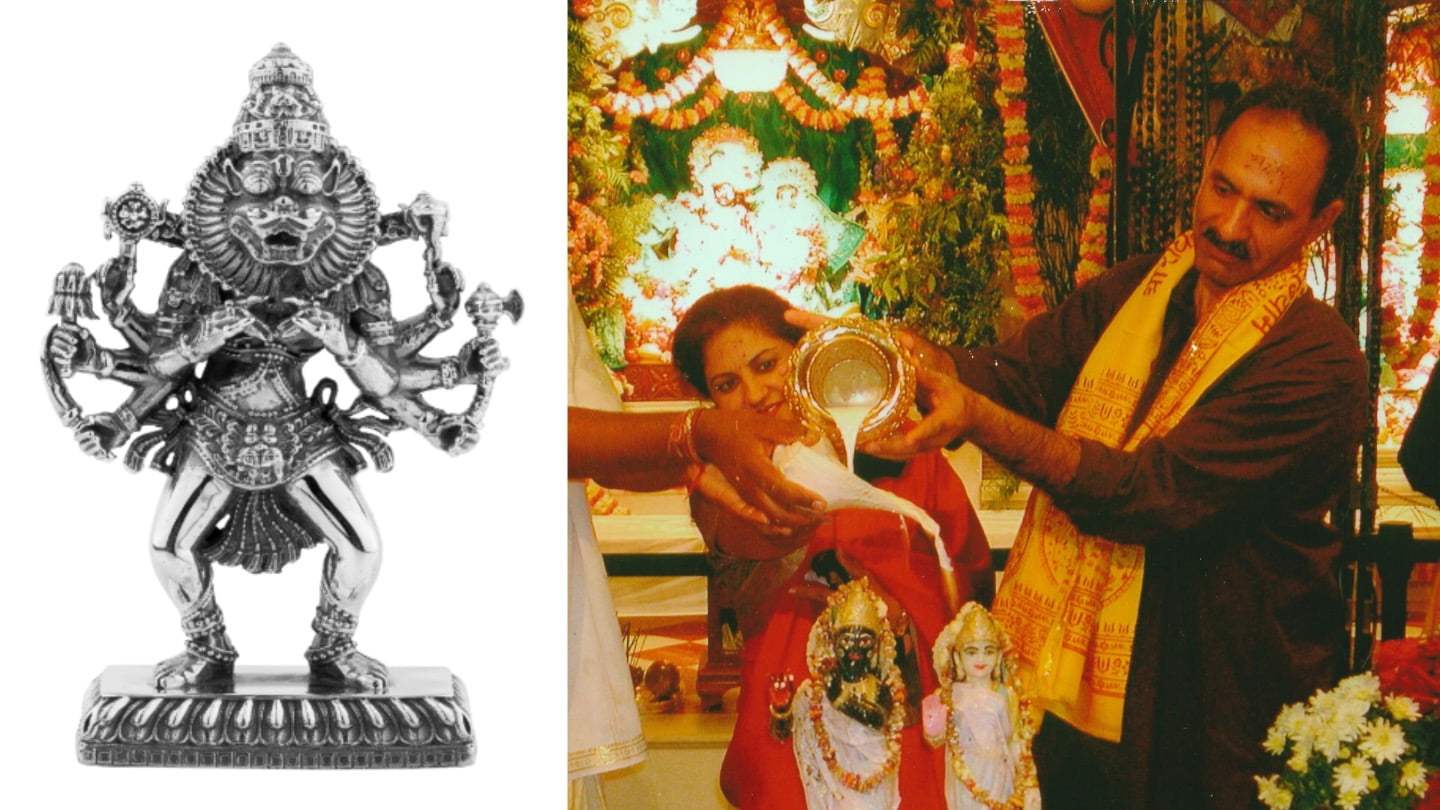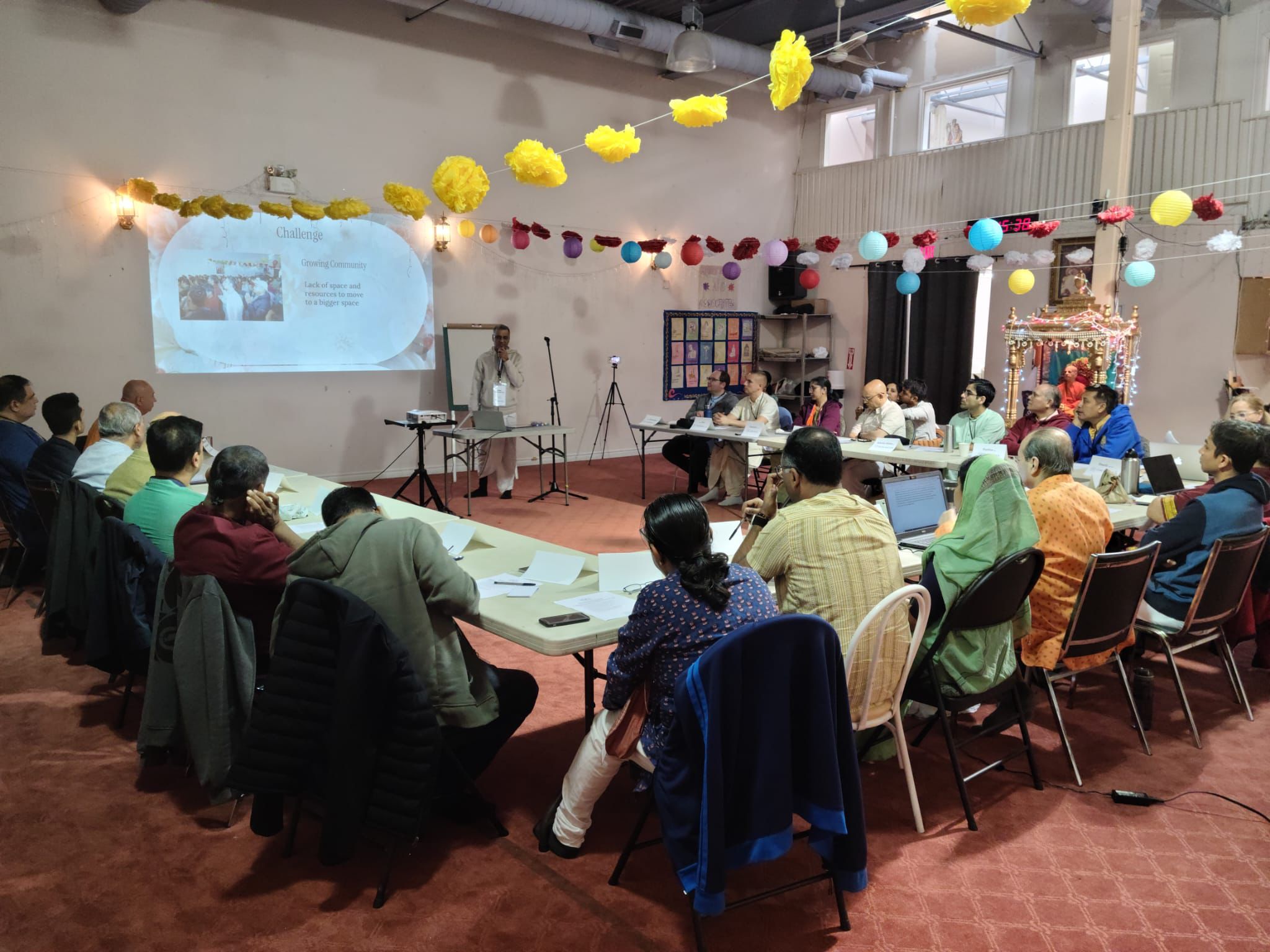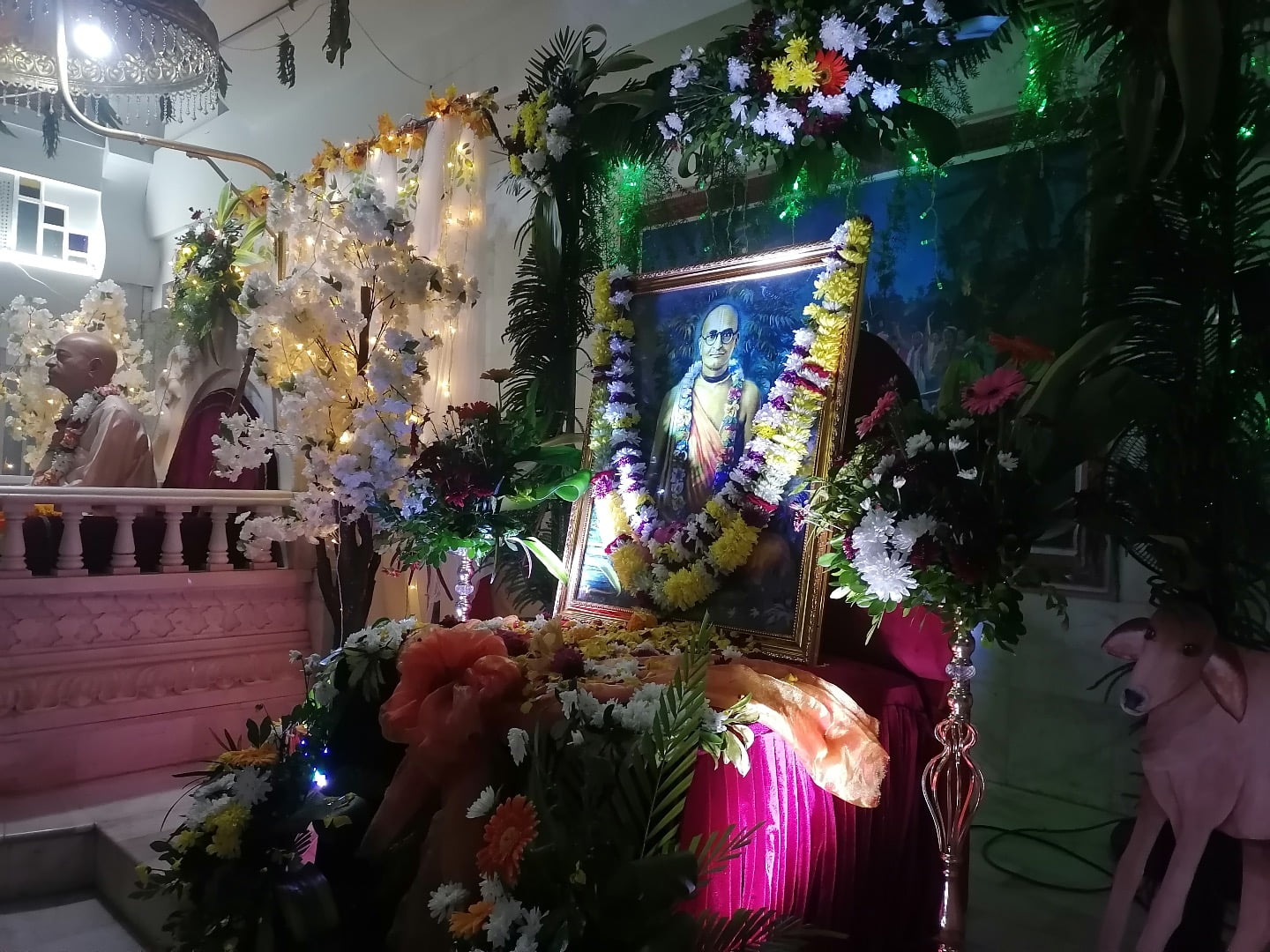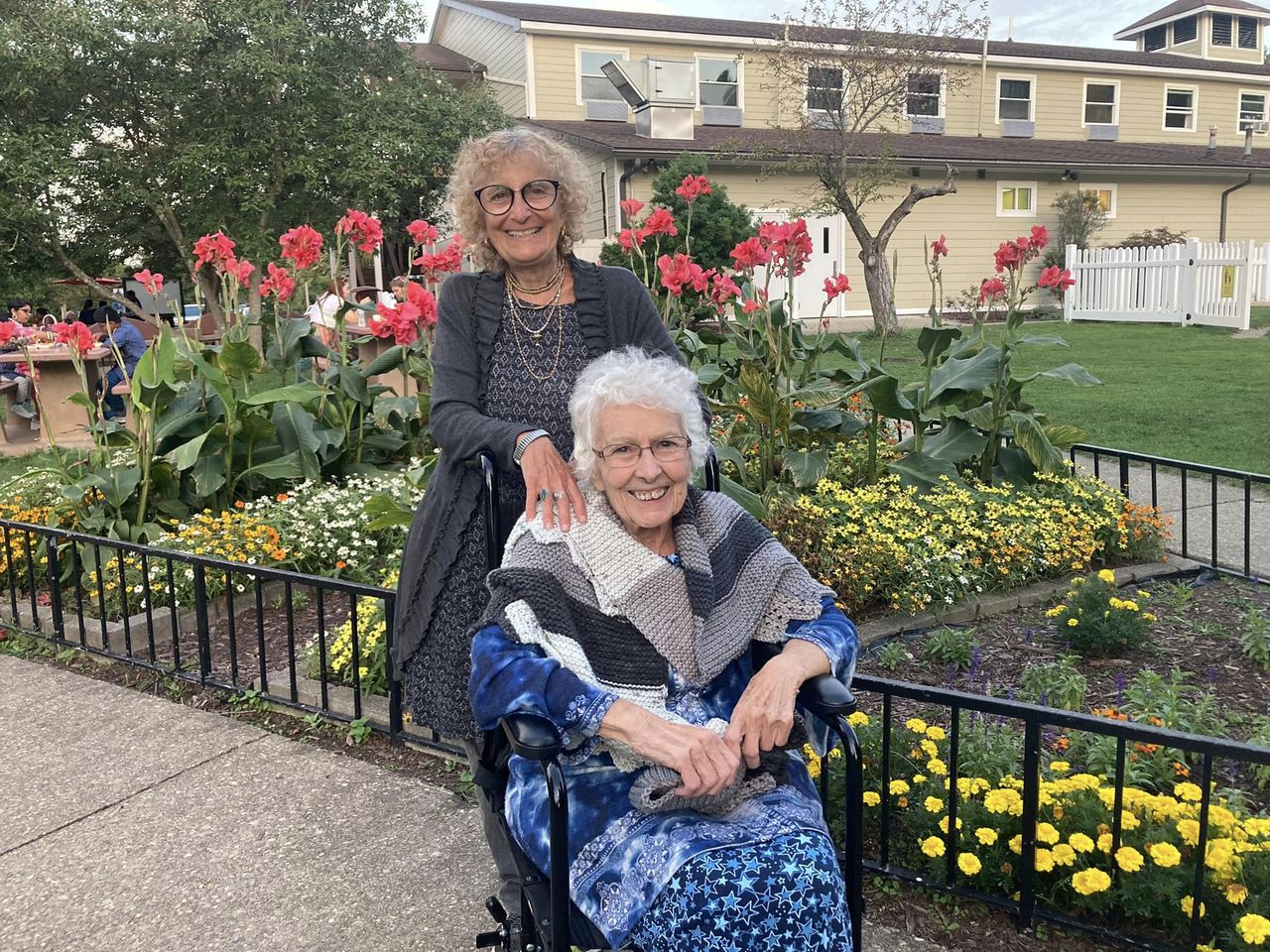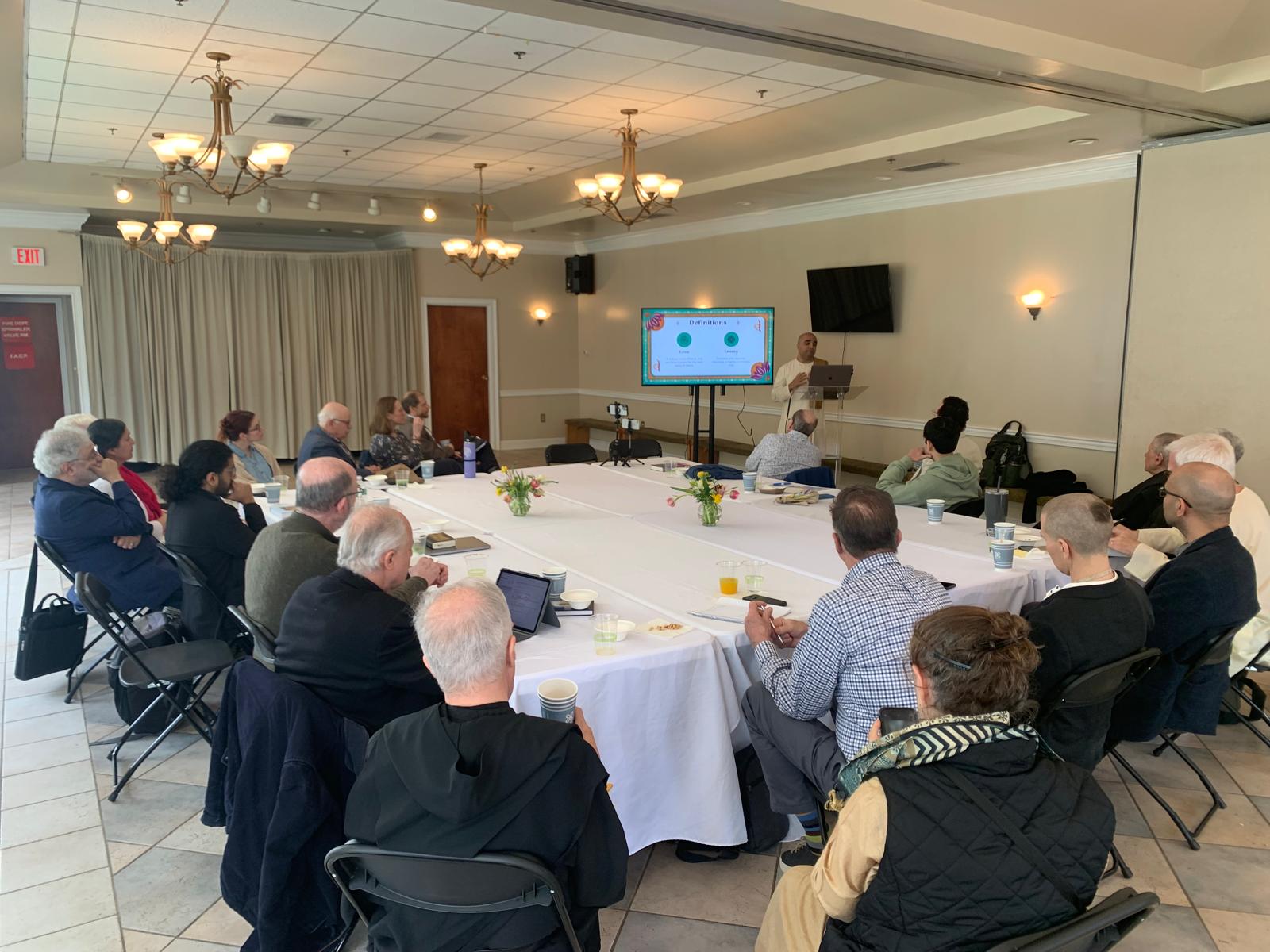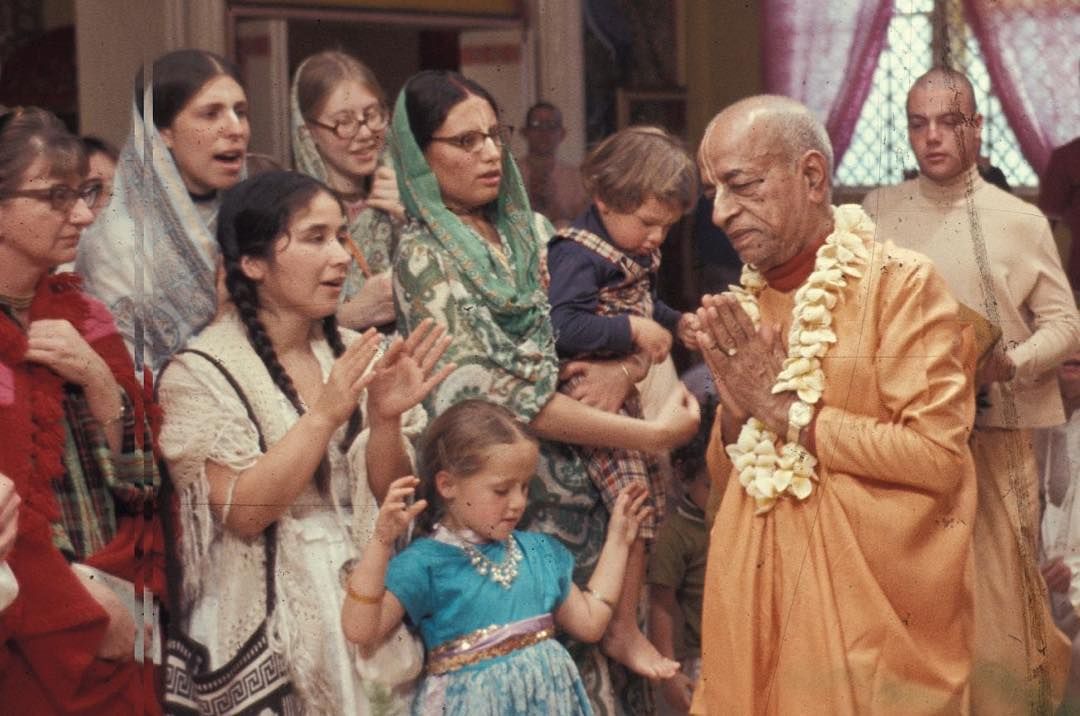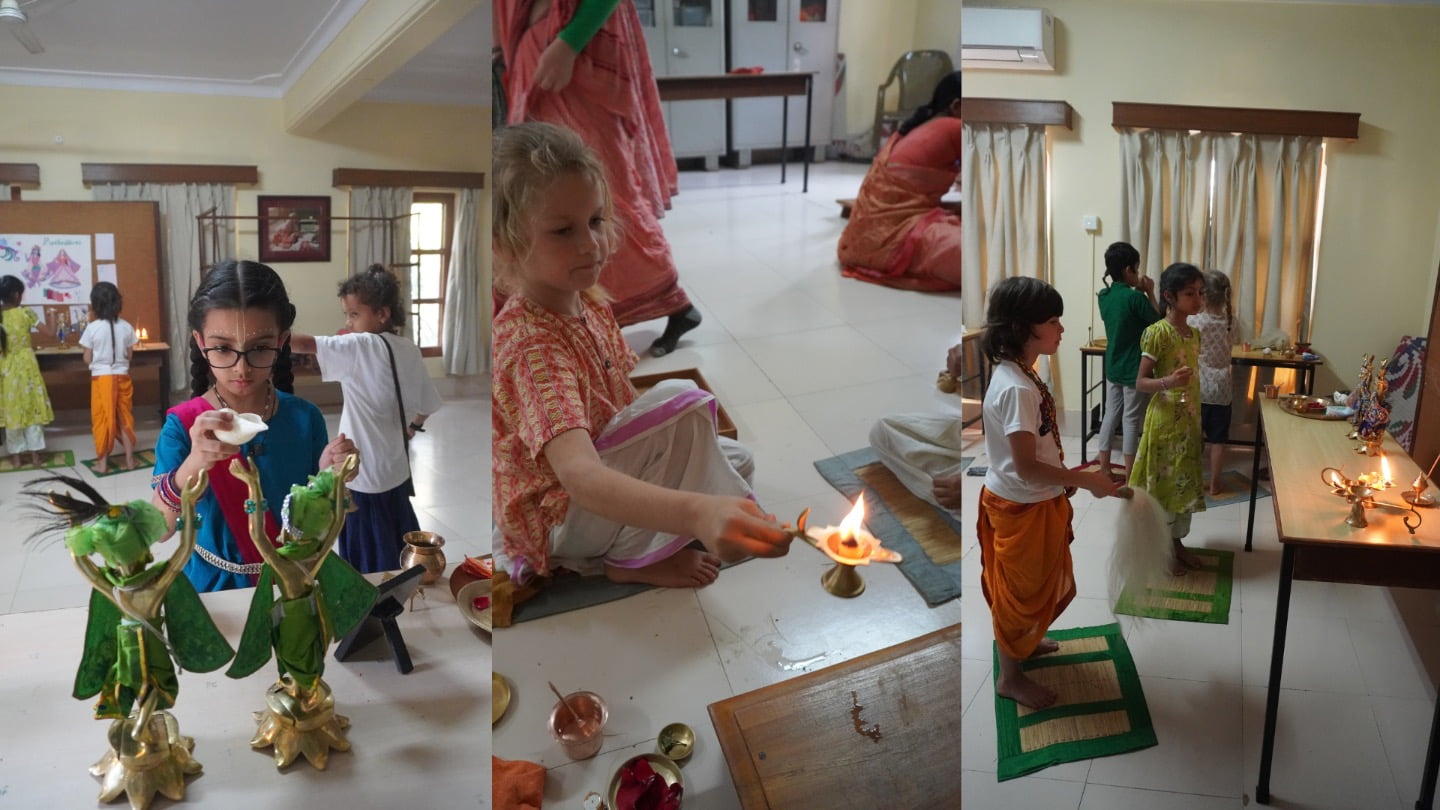Sarva-drik Das Brings Krishna to Virginia Prison Inmates
By Madhava Smullen | Jan 11, 2013
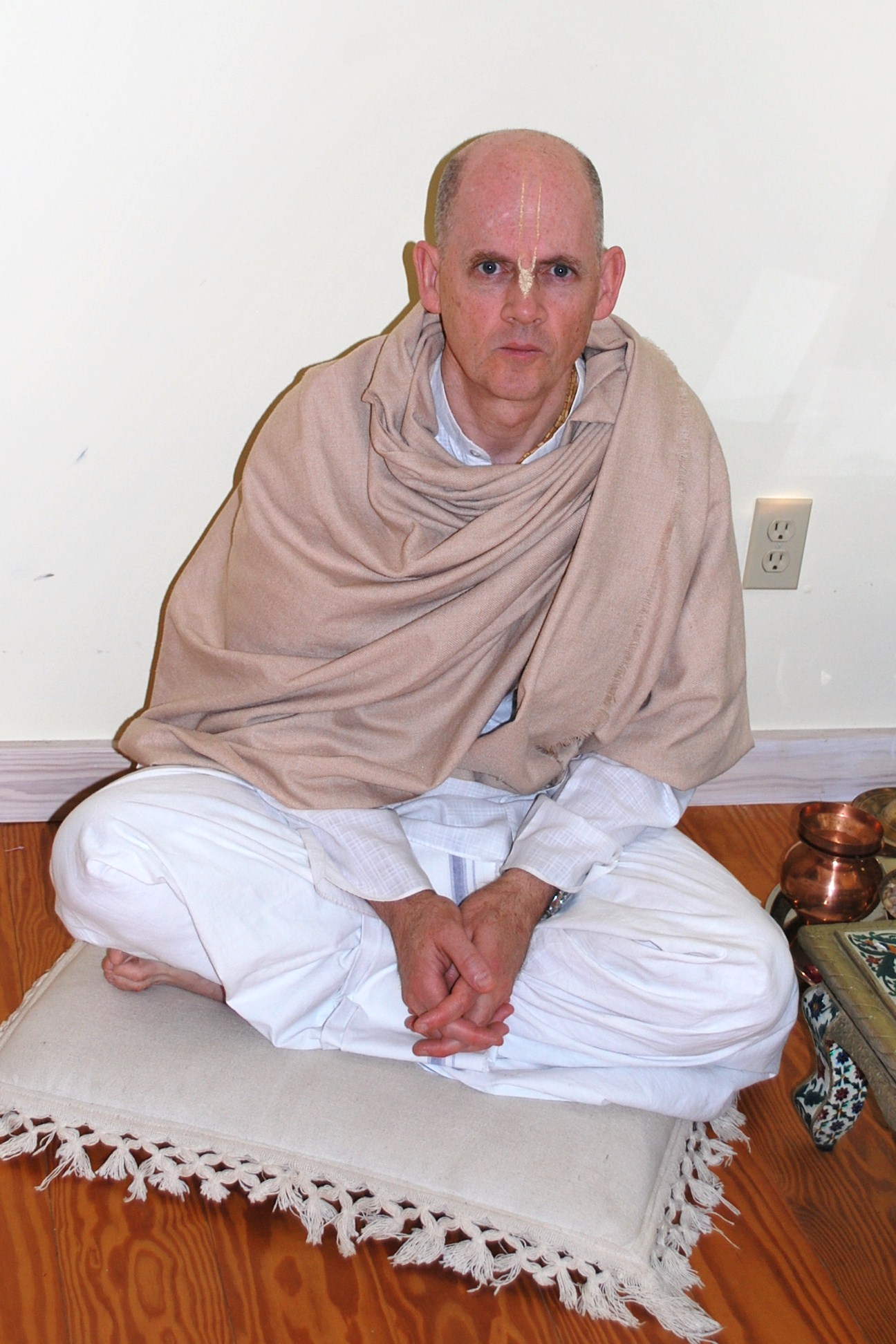
Believing that every soul has the potential to do good, and to gain the mercy of Sri Chaitanya Mahaprabhu, ISKCON Prison Ministry corresponds with inmates all over the US under the direction of full-time volunteer Bhakti-lata Dasi.
But one person can only do so much, and IPM also relies on individual devotees around the country who take the redemption of inmates into their own hands.
One of these is Sarva-drik Das, a disciple of ISKCON Founder Srila Prabhupada since 1973, who currently holds a monthly program at the Federal Correctional Institution (FCI) in Petersburg, a suburb of Richmond, Virginia.
Sarva-drik’s first experience running a Krishna consciousness prison program was back in 1992, when a former inmate asked him to visit the residents of the FCI in Englewood, Colorado.
Entering the prison was a sobering experience for Sarva-drik. First off, he was subjected to a three-hour orientation process, during which prison officials fingerprinted, photographed, and ran a background check on him.
As if trying to scare him off, they then went into intricate detail about the violent acts that occurred in the prison, contraband, and what to do in a hostage situation.
Finally, it was time to enter the prison.
“When the large, heavy steel door closed shut behind me during my first visit, I thought to myself, ‘I’m glad that I’m just visiting,’” Sarva-drik recalls.
But for the hundreds of inmates at Englewood FCI, their stay was not so brief. They lived there, and some of them would die there. So they were grateful for the light that Krishna consciousness brought them. Sarva-drik began simply, by introducing them to kirtan, and some took the spiritual path very seriously.
“During that time in Englewood, Bir Krishna Goswami once performed an initiation ceremony for one of the new devotees right there in the prison,” says Sarva-drik.
“I remember officials wouldn’t allow a fire sacrifice, so we did a water sacrifice instead. We chanted the mantras, and said “Svaha” while offering water with achman cups, rather than throwing grains into the fire.”
After holding regular programs at Englewood FCI for two years, Sarva-drik got married and spent twenty years working on his career, as well as preaching Krishna consciousness at colleges and high schools.
But in June 2012, he returned to prison outreach.
He now holds programs on the third Friday of every month at Petersburg FCI, Virginia, a medium security prison with 1,400 inmates.
Before he arrived, some of them had already been in regular correspondence with devotees by mail, but none had ever met a devotee in person before.
Sarva-drik recalls his astonishing first visit to the prison.
“They have a chapel with different rooms for different religious groups: Christians, Muslims, Jews, Wiccans, Heathens, you name it,” he says. “I walked into one of these rooms, and they had completely transformed it into a temple. There were pictures from Back to Godhead magazines and BBT calendars all over the walls.
They had Gaura Nitai and Radha Krishna Deities, mridangas and kartals, and all of Srila Prabhupada’s books, ordered from Krishna.com. And they greeted me with, ‘Haribol Prabhu!’ I was the first devotee they had ever met.”

Gaura Purnima 1993 at Englewood Federal Correctional Institution in Colorado
The first time Sarva-drik joined the Petersburg inmates for a kirtan was a unique experience. As their only information about Krishna consciousness until then had been from books and letters, they had never heard how to sing kirtan or pronounce the words properly.
“They said, ‘Here are our Gaura Nai-tai deities,’” recalls Sarva-drik. “Then, when they started the kirtan, one of the devotees had a guitar, and he was just using a G chord and a C chord. It was almost like a rap style kirtan. But they were very enthusiastic. And they really got into it.”
The inmates’ kirtan made Sarva-drik think more about what’s truly important in our chanting. In the past, he had seen some devotees emphasize the musical quality of kirtan over the content—form over substance.
But here was a group of devotees who didn’t know how to play mridanga or kartals, and didn’t know the correct melody. They had only substance, and no form. But the sincerity of their intent was deeply moving. And he realized that this was what was most important.
With the constraints of life in prison, substance is often all the inmates have. On one occasion back at Englewood FCI for instance, Sarva-drik remembers how they got the chance to cook a feast for Gaura Purnima—Sri Chaitanya’s appearance day—in the prison kitchen.
“Of course by temple standards, you can’t cook in a pot that has had meat cooked in it,” he says. “But it was all we had to work with. So we did the best we could, offering the food to Chaitanya Mahaprabhu, asking for his blessings and that he accept the offering, and giving the sanctified food to the inmates. These kind of experiences have been very helpful for me in my own introspective life, allowing me to see what is the essence of Krishna consciousness.”
It’s this essence that Sarva-drik focuses on in his programs with the inmates. A core group of eight—sometimes up to twenty-five—gathers every month for two-and-a-half hours. They first offer obeisances to each other, then sing kirtan together, and then Sarva-drik speaks briefly on a chosen topic from the Bhagavad-gita.
Finally, in order to build their faith and encourage them as much as possible, he allows at least half of the time period for questions and answers.
These fall into three main categories: There are the externals of how to be a devotee—for instance, how to put tilak on, how to pronounce a certain word, or how to sing a bhajan. There are basic philosophical questions—such as why we’re here, and what is the soul. And there are questions about how to navigate life in prison as a devotee, and how to deal with other inmates.
“They’re challenged in many ways—sometimes because of who they are, and the heavy karma they have to deal with,” says Sarva-drik. “Some of them will die in prison. But one of their biggest challenges is the association.”
One inmate, for instance, is a gentle soul who feels for the resident pigeons and likes to hold and feed them. Once, as he was doing this, another inmate walked by and kicked one of the pigeons as hard as he could, killing it—for no reason other than to be mean. This kind of environment is something they must learn to deal with—and an understanding of Krishna consciousness and the nature of the material world can help.
At other times, devotee inmates can be the positive association for others. One devoted soul walks around with a fully shaven head and sikha, and has picked up the nickname “Krishna,” compelling all 1,400 inmates to chant the Lord’s name whenever they see him.
Whether their experiences are good or bad, however, inmates tend to be the perfect recipients for Krishna consciousness. With lots of time on their hands, and no distractions, they are often very introspective. On top of that, they can relate easily to the analogy of all conditioned souls being imprisoned in the material world.
“It’s helpful for them to understand that they’re not the only one,” Sarva-drik says. “The whole world is in prison. And devotional life is parole. We’re correcting our faulty behavior, rectifying our relationship with God, and making progress in our life. And one day, there’s liberation from this situation. Whether we’re ‘in prison’ or out.”
One thing’s for sure: with the help of Sarva-Drik Das and the other volunteers at ISKCON Prison Ministry, they have all the tools they need to break out.
As well as visiting them once a month, Sarva-Drik corresponds by mail with several inmates. Meanwhile, in the prison they have a well-stocked library of Srila Prabhupada’s books, a set of kirtan instruments, and will soon receive DVDs of Srila Prabhupada. Even when Sarva-drik is not present, they meet twice a week to have kirtan and study Bhagavad-gita, and are allowed to celebrate two festivals a year—Janmastami and Gaura Purnima.
These results are encouraging, and Sarva-drik hopes to replicate them in other prisons in the future, beginning with the larger Butner Prison near Raleigh, North Carolina.
“Trying to help someone else in Krishna consciousness is the most inspiring thing,” he says. “There’s nothing more invigorating.”





